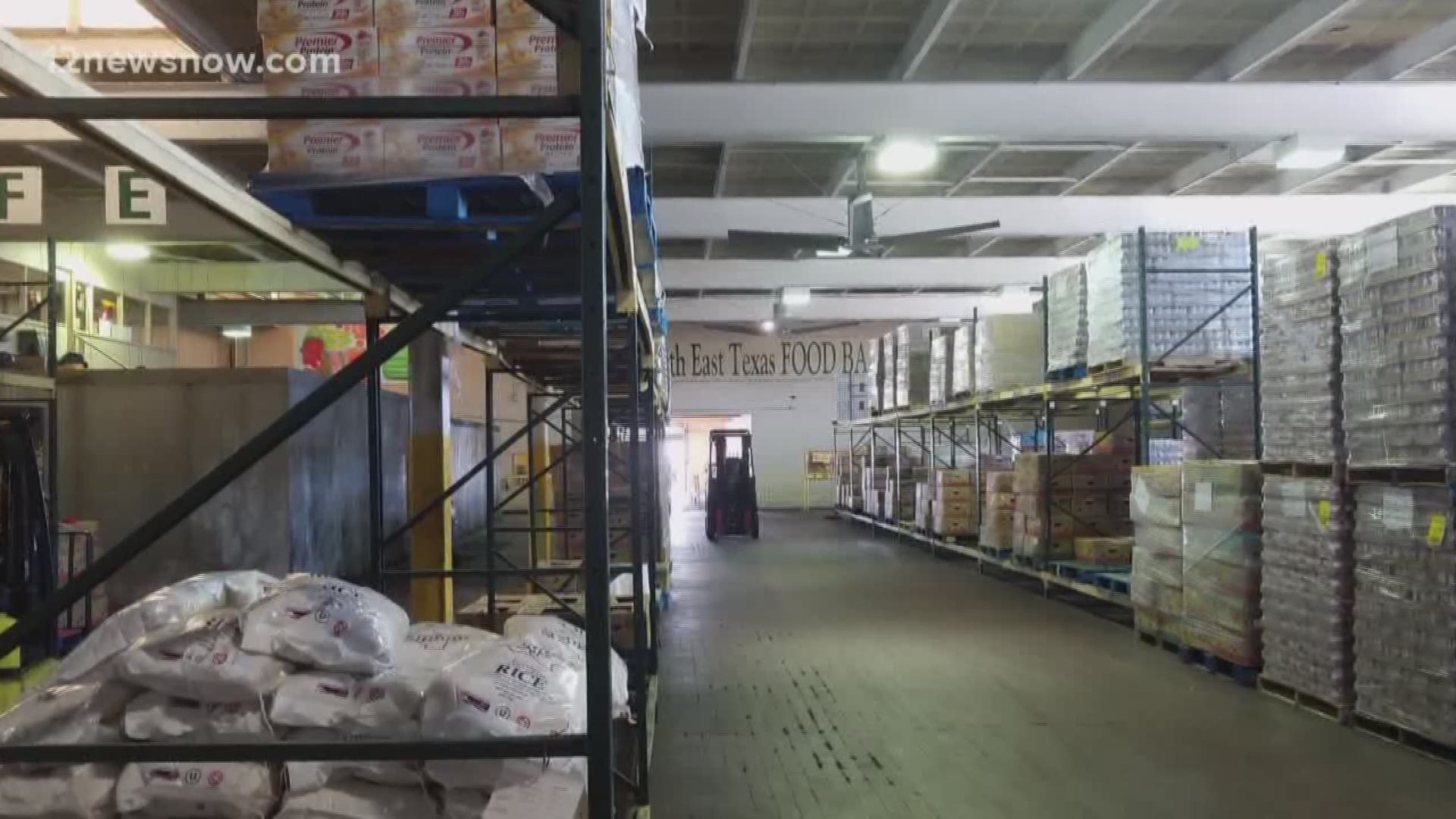BEAUMONT, Texas — The Coronavirus has left many Americans unemployed, and in some cases, hungry. Food banks report a huge increase in demand, and at the same time, they're struggling to find resources.
"We're sensing in some places as much as a a doubling or tripling of demand, and we have to be prepared for that as a community, and we have to be in this for the long haul," said Dan Maher, CEO and President of the Southeast Texas Food Bank.
Maher says they work with 76 organizations across the eight county territory that they serve. Many of these are small churches and social services in various communities.
"They are the boots on the ground that receive food from us and make sure it gets to the general public," Maher says.
Of those, Maher says 20 have had to shut down, because most of the volunteers who keep theme going are senior citizens, who fear exposure to the virus.
"We're working as safely as we can and helping our partners understand how to operate safely themselves, but it is, of course, understandable that people have their own reluctance, or their own regard for their health at this time," Maher said.
On top of the shut downs, Maher says there are some underlying issues that have always made things more difficult for those living in the more rural areas. The main problems they run into are transportation and distance to the sites that have food for them.
"Just as the disease has an impact on those with underlying conditions, so there are some underlying conditions baked into the community that we become more aware of," Maher explained.
Despite these issues, they still have operational food pantries in every county. Maher says they're doing their best to keep them stocked.
"We're just trying to maintain our agencies as much as possible, and maintain our inventory in a semi-rationed way, so that we can store it for the long haul," Maher said.
But there's another challenge they're facing. Food banks across the country are having to wait 6-10 weeks for deliveries from the national supply chain. Maher believes the hold up stems from all of the panic buying that took place as COVID-19 began to hit the community.
"Grocery stores tend to be the primary way the food supply pipeline works, and getting those grocery stores whole is priority over getting food banks whole," Maher explained.
With their current inventory, Maher says they expect to be able to operate for several more weeks. They've seen a huge response from the community in terms of donations, but they're going to need continued support in the days to come.
"Funding is one of those issues that we do need for the long-term, because we need to have food coming forth for months and months probably out of this, and then volunteerism, of course, continues to be a big need here on site at our agencies," Maher said.
Maher says they're working on coming up with creative solutions to help continue to serve those struggling the rural communities.
"We're strapped for volunteer resources, but studying issues, getting creative about, is there some way to have special distributions to get food opportunities closer to people, maybe even doing something trying to get food to people in their homes at some point," he said.
These are long term plans, but Maher says one way people can help those areas now is by volunteering. Younger, healthier volunteers stepping up to serve could help get some of the places that have had to shut down operational again.
"I think in the rural communities because there's so much self sufficiency that this crisis demands, sometimes getting people to cross over and go into other communities and help is an important step," Maher said.
Maher says they're looking forward to setting some of these solutions into motion. People can sign up to volunteer or make a donation on their website.


